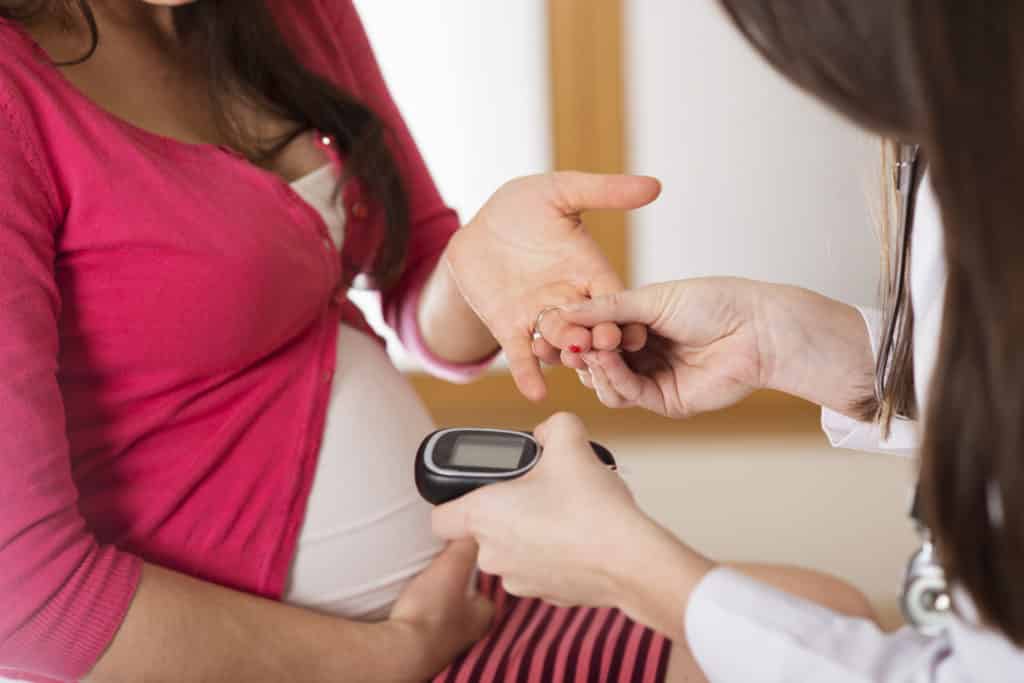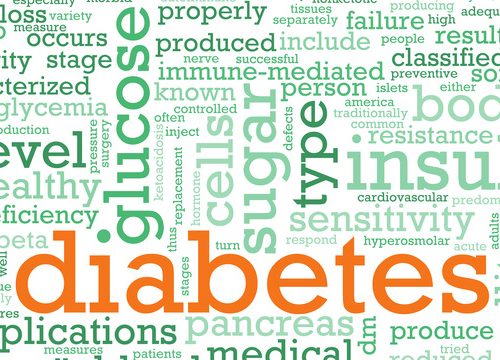
Pregnancy can bring joy and happiness as mom welcomes a new baby into the world. For some women, though, pregnancy can also bring on gestational diabetes.
Diabetes is a serious disease in which your body cannot properly control the amount of sugar, known as glucose, in your blood. (If you have diabetes and plan to become pregnant it is important to discuss any concerns and dietary habits with a healthcare professional.) With gestational diabetes,the potential complications and risks for the mother and baby can be serious, which is why doctors test blood glucose several times throughout a woman’s pregnancy.
Being diagnosed with diabetes during pregnancy may seem daunting but it’s important to work with a healthcare team to develop a plan to control blood glucose. This often requires lifestyle changes including diet modifications, managing your weight gain, being physically active, and in some cases, medications. (In many cases, gestational diabetes goes away after you give birth.)
A mother’s diet is very important during pregnancy since it not only affects the mother but the developing baby as well. Cravings and various food aversions are normal during pregnancy so discuss them with a registered dietitian or another member of your healthcare team so they can help develop a plan that not only meets your nutritional needs but is also appealing. (If your diet is full of foods you don’t enjoy or like, you are not likely to stick to it.)
It’s important to remember that moms need to eat enough calories and nutrients for both the mom’s and the baby’s health, which may leave less room for treats. Regardless of whether a food is perceived as healthy (such as fruits and vegetables) or indulgent (such as desserts) many foods affect blood glucose. Your healthcare provider can assist you in determining how frequently certain foods can be eaten as well as the amount (portion size is key).
Moms want the best for their baby so it’s easy to understand why they may have concerns about certain foods or food ingredients. Whether they have diabetes or not, some moms may wonder about the use of low-calorie sweeteners, such as aspartame, during pregnancy. Unfortunately, there has been a lot of misinformation recently about low-calorie sweeteners. However, aspartame is a safe and easy substitution to make in your diet and it allows you to enjoy something sweet without added calories or affecting your blood glucose. Moms can take comfort in the fact that aspartame does not cross the placenta and never reaches the developing baby. Instead, aspartame breaks down in the body to the same components found in other foods. More information about how aspartame is broken down in the body can be found here.
The U.S. Food and Drug Administration (FDA) and the Council on Scientific Affairs of the American Medical Association agree that women who are pregnant or breastfeeding can safely use aspartame. An American Academy of Pediatrics Committee on Nutrition task force also has concluded that aspartame is safe for both the mother and developing baby. However, it’s important that moms with phenylketonuria (also called PKU) discuss using aspartame with their health care team as aspartame is a source of phenylalanine.
Managing your diet while pregnant, especially if you have diabetes, may sound overwhelming, at first. While often temporary, poorly managed diabetes during pregnancy can be serious for both the mom and the developing baby. So it is very important to work with your healthcare provider to find ways you can make your diet both enjoyable and nutritious for you and your baby and be sure to enjoy this special time.




